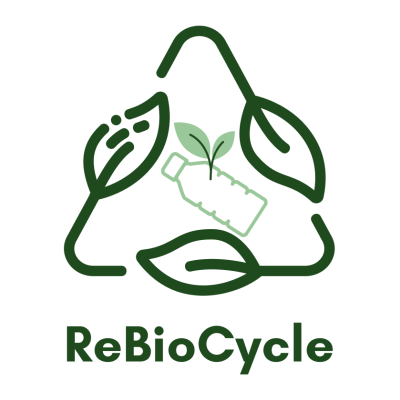
ReBioCycle
A new European blueprint for circular bioplastics upcycling solutions

A new European blueprint for circular bioplastics upcycling solutions
The plastic industry is currently focused on linear processes, namely the extraction of raw materials and their conversion into valuable products, with no consideration for the recycling or reuse of products. Due to poor plastic waste management, approximately 1-5% of all plastics end up as waste in terrestrial and oceanic environments. Furthermore, most CO2 emissions are caused by the extraction of raw materials and polymer production.
These issues have been driving a transition towards a ’circular (bio)plastic economy’, stimulating the use of bioplastics. Depending on the production processes, bioplastics can offer improved circularity by using renewable non-fossil resources, as well as a lower carbon footprint, and biodegradation as an alternative end-of-life option. Nowadays, there is a bio-based alternative replacement for almost every application of fossil-derived polymer. Nevertheless, bio-based replacements can be more expensive, and due to flaws in current waste collection and processing systems, they end up in landfills or incinerated.
ReBioCycle aims to demonstrate that bio-based biodegradable plastics can be kept in the cycle for as long as possible through innovative recycling technologies and that end-of-life bio-based biodegradable plastics can be used in the circular (bio)economy.
To achieve its goal, ReBioCycle aims to: